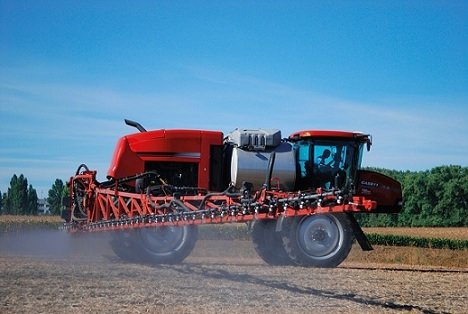Introduction
Agricultural sector (particularly the area of crop production) is one aspect of our lives that has formed an integral part of our existence - I mean, how many of you can do without consuming agricultural products? Well, except you have the superhuman ability of producing your own food; maybe through photosynthesis, lol. But if not, then you would; in one way or the other; be dependent on farm products for food. But as it were, the area of farming has enjoyed technological whatnots lately, and that could explain why people seem to be tilted to that field; because everything has been simplified by the advent of industrialization, which led to the production of farm machines. But did these machines fall from oblivion? Obviously not; so how did all these start? In this post, we will be looking at the evolutionary stages in the advancement of technology, but we would be zeroing in on only the agric sector (crop production). Welcome again to the possibilities heralded by the advancements of technology.

[Image Source: Pixabay. CC0 licensed]
No doubt, we are in the brink of a major revolution in the tech world, and we are also in the 4th industrial revolution (4IR), but before these advances, how was the farm sector like? You would agree with me that there was no glory in it that it should be desirous of anyone. When I was growing up, my late grandfather used to tell us that when he was much younger, farm work was synonymous with suffering and hard work; well, this is because it was majorly characterized by manual and physical input of human labour. But even long before that era, how was farming like? Okay we will take a little time travel back to the days of our ancestral grandpas - if you know what I mean.
In the beginning
There is no disproving to the fact that humans in this extant form (which is the Homo sapiens sapiens) evolved through some millions of years from some weird Ape-like hominid species, though we wouldn't be going into details of human evolution here, but a particular specie that represented a breakthrough in the ability of man to handle tools was the Homo habilis - It is not surprising that the term "habilis" suffixed the name; which indicated "ability". This was also referred by many as the "handy man" [ref]. But majorly, the tools that were made by these species were crude stone tools, and some of them were excavated alongside their fossils; of which some remarkable ones were found at the Olduvai Gorge (Tanzania; East Africa), and awesomely enough, some of these are still available even to this present day.
Now, some may ask; didn't some earlier species make use of tools? Well, it has been recorded (based on some paleoanthropological evidences and analysis) that the Australopithecus (which was a major borderline between Ape and men) used tools too. But the only difference is that, they didn't fashion or create their own individual tools, but sourced for pre-existing objects and used them as tool [ref]. That is why it has been a bone-breaking task to pinpoint the exact specie that initiated the process of crop cultivation. But as it were, when the early men began to use tools, that was when we could say that tilling the ground was initiated - because these tools made it possible for them to till the ground, and after consuming fruits, the seeds would be (either unintentionally or purposely) dropped on the ground, and sooner, it would turn into seedlings and plants, and the process continued. You wouldn't be wrong to say that the making of tools was instrumental to the agric processes of the ancient early men.

[Crude Stone Tools. From Wikimedia Commons. Public Domain Licensed]
So by inference, agriculture and crop production has been around for a very long time. But the thoughts of tilling the ground with crude stone would leave anyone in nightmares, well I guess they didn't have much choices then. But when man progressed from the crude nature to this extant form; and by then, very simple iron tools were made (that was during the early Iron Age), simplification arrived in the field of farming. Even though these tools were crude too and still required heavy reliance on human labour, but it was seen as a step in the right direction. Imagine moving from cultivating with stone tools to cultivating with iron hoe; isn't that a milestone achievement? And as time went by, complexities arrived in the area of tool construction and usage, and that was how the plough and all whatnot came to be. But in the initial stage, these ploughs were driven by animals (particularly bulls).
Though there was less reliance on the manual physical labour of humans, and it was shifted to animals, but human efforts were required too - to direct these animals. And doing this for a large piece of farmland would still place strain on both the animal and the human director, so other options were sought out for. And boom!! The industrial revolution was birthed.

[Image Source: Wikimedia Commons. Author: Keystone. Public Domain licensed]
The renaissance, the revolution, and the automation
During the first industrial revolution (1IR), there was a consensus effort to replace the manual labour of people with machines, and that was how the idea of tractors and other farm machines came to be. And this led to a major boom in the agric sector. A piece of land that would require multiple human labour and would also take some time to complete can be finished off by machines in lesser time with precision, accuracy, and with fewer people involved - isn't that amazing? Okay I know it led to the loss of humans jobs, but it also led to increase in crop yield, increase in GDP, and creation of other kinds of jobs - can you beat that?
Even with the emergence of farm machines, human labour was still remotely involved. For example, you would need human to drive the tractor or the harvester. But just for you to know, this current 4th industrial revolution is characterized by industrial automation, because of the advances in the technology of Artificial Intelligence; which has arisen to simulate the human abilities in machines. And now what do we have? Very obvious - Agric-Robots (these are agricultural machines that run partly or wholly on AI and automation). What idea does this give you? The human physical labour is now dispensable; even in the field of agriculture. No wonder we have heard so much about "precision agriculture" lately.
I'll give you this instance: Pollination, like we know, is the transfer of pollen grains from the anther of the flower of a plant to the stigma [ref]; which is a major factor in the production of crops. One of the agents that help pollination is bee. But with the recent decline and reduction in the population of bees worldwide, as indicated by this report, what would be the feasible solution? Well, technology has found a feasible solution - the Drone Pollinator. This is a type of agro-robot modelled after the nature, shape, and functionality of the biological bees; which is tasked with the function of aiding in pollination. And just some few of these drones can selectively pollinate large farms in the shortest possible time - Now you see, technology is not only decimating human jobs (as feared by many), but also the jobs meant for other creatures. Maybe you can take a quick look at this YouTube video to see how drone pollinator works.
The future
Judging from the waves of technological advances, and extrapolating it to the future, you can infer what the future holds for us. Ever thought about fully integrating the technology of AI in every aspect of our lives; including farming? Imagine when the technology of Brain-Computer Interface (BCI) gets incorporated here, we could control these farm machines just with our thoughts, without moving a single muscle.
Maybe that wouldn't pique you as much as the fact that we are evolving alongside our devices (machines included). Maybe in the nearest future, these machines would literarily be part of us - and that could be among what would be offered by the proposed Singularity. Remember when I told you that we would; of necessity; merge with machines, this could also be applicable in the field of agric. But on the flip side; would there even be a need for this when the future could support the production of synthetic (lab-grown) crops? This could ultimately sideline even the natural agricultural sector. We should just keep an open mind as we watch our agric sector evolve technologically.
Conclusion
No doubt, the advancement of technology has brought some obvious revolutions in every aspect of our lives. Here we took a look at the agricultural sector; which covered the past, present, and the future. But the truth is; whatever we may have seen in tech world is nothing compared to what is coming. We only need brace up.
Thanks for reading
References for further reading:
- Origin of tool making
- Insight on the trail of industrial revolution
- Application of technology on agriculture - precision agriculture
- Agro Robots: Ref 1, Ref2
All Images are CC Licensed and are linked to their sources


gif by @foundation
https://discord.gg/mKSKQ7T
Nice article... Sometimes I wish I can get a glimpse of the future. Advances in technology would leave my jaw dropping
The future is already here bro. Technology can only get better
That's true.. It's here already
How did you come about the red headings?
Lol. I've sent you a DM
Hi @samminator!
Your post was upvoted by utopian.io in cooperation with steemstem - supporting knowledge, innovation and technological advancement on the Steem Blockchain.
Contribute to Open Source with utopian.io
Learn how to contribute on our website and join the new open source economy.
Want to chat? Join the Utopian Community on Discord https://discord.gg/h52nFrV